#horizon meta
Text
Sylens is such an interesting character, because the narrative uses him to demonstrate that modern civilization doesn't inherently make people smarter.
Humanity can be creative, cunning, intelligent and wise (and sometimes the opposite), and it's not western civilization that makes us that way. Horizon manages to pull together the value that education is valuable and the loss of Apollo was a travesty, with the idea that people are not worth less because of it.
Sylens is an antagonist to Aloy in part because of the inherent worldview that he has, and that's going to be even more interesting if we see him continue to work together with Aloy in the next game.
You can't even blame Sylens for his perspective - he blames atrocities like the Sun Ring on superstition and the lack of education in the current world. But he discounts Aloy for the same reason, and she proves him wrong again and again. The narrative continues to use him to show that people are not worth less, are not less intelligent, if they don't have the same framework that he's working from.
#horizon zero dawn#horizon forbidden west#sylens#horizon meta#if you've seen this before it's because you're on the same discord server as I am#just me archiving my corvid thoughts
111 notes
·
View notes
Text
Power in a Name: Nil and Aloy parallels
I've been thinking about the inverse parallels that Nil and Aloy have with social dynamics with their names, and how it gives them a level of understanding that is completely unique to them and how they regard each other. It's something that is unspoken between the two of them, and yet mutually understood, and it gives a level of emotional depth that is immensely cathartic upon the acknowledgement of each other by name.
**spoiler discussion for Horizon Zero Dawn and Horizon Forbidden West**
---
Aloy has only ever wanted to know her mother's name; there's connection and lineage and community in the name of your family. For so much of the "tutorial area" in The Embrace and the events leading up to the Proving, her name is not important to identifying her: she is simply known as "motherless" or "outcast" or both. Lansra wants to deny her even being given a name during the opening cutscene -- it's only through Teersa's kindness and calm, firm insistence that she be named facing the sunrise with a Matriarch's blessing.
Across the games, Aloy is given a number of titles from the various tribes: Anointed of the Nora, Savior of Meridian, Hekarro's Champion. All these titles laud her accomplishments and put her on a pedestal of respect; the complete opposite end of the spectrum to when she first interacts with the tribes.
To the Nora, she has gone from the lowest social status in the tribe as an outcast, to Anointed in one fell swoop-- given a sacred status of near-worship and unquestioned acceptance due to the belief that she has spoken directly to All-Mother within the Mountain. This sudden switch is so jarring for her, and also a stark realization that while she thought she was looking for acceptance, she never wanted it like this.
The Carja have always held arrogant views on the other tribes; their advancement in technology and their organized militarization have given them a distinct advantage over all the other tribes, and with it, a sense of superiority. Their culture and their religion reinforce the idea that the Nora are simply savages, with the upper classes seeing them unfit to even deign faux-civil conversation (as seen in the Hunter's Lodge). In the face of the oncoming destruction led by HADES and the Eclipse, Aloy's victory is seen as heroic and put onto both a figurative and literal pedestal in a display of zealous admiration for her accomplishment at slaying Helis, Terror of the Sun, and saving Meridian from certain doom.
The Tenakth, viciously protective of their land and people, are already disinclined to allow outlanders to walk their Clan Lands in the aftermath of the Red Raids. Fashav tells us that without proper right of passage the Tenakth would attack Aloy on sight, no questions asked, regardless of the importance of her mission. Following the Embassy, the events at the Bulwark, and the defense of the Kulrut, Aloy quickly gains a fearsome reputation and accompanying moniker of Hekarro's Champion -- again, a title of her accomplishments.
Throughout all of her journey, she does her very best to be known by her own name, not by any grand title or reputation of great renown, but simply as the huntress Aloy. She rebuffs most greetings of her monikers with "Just Aloy." in a clear and direct attempt to be met as a person instead of by the sheer force of her reputation as told by others.
So much of her life has been under the weight of other people's perceptions of who they think she is: a larger-than-life-figure, a mysterious huntress with second sight, a formidable warrior even by the standard of great warriors. Even her perception of herself in shadowed by the width and breadth of Elisabet's legacy and sacrifice. Is it too much to ask for her to simply be seen and known as herself, and just as that?
---
Nil, conversely, has been known by many names, most of his own choosing. Names are evidently important to Carja culture, as many have epithets or titles to indicate their standing or calling, like Mournful Namman, Studious Vuadis, Javad the Willing, or Well-Traveled Aram. Nil seems to shed names as easily as Aloy does armors, changing and adapting and letting go of past personas quite easily. A name to the Carja is connection, power, and reputation. As we meet Nil, he introduces himself and is then known by a name of his own choosing: one that literally means "nothing". Every name we know him by is one made to embody a new persona, with no connection to his lineage.
Upon first meeting, he introduces himself by telling Aloy to "…call [him] Nil." Notice the wording: "call". Not "My name is…" His phrasing is distinct and deliberate, and majority of the conversation you have with Nil after completing the Devil's Thirst bandit camp is vague in terms of his origins, skirting around clear details and speaking in obfuscated references to past events. Through Janeva, Warden of Sunstone Rock, we learn that "Nil" is not his first name, although it remains uncertain if he was known by his true name or another during his time at Sunstone.
ALOY: Do you know a…hunter…named Nil? He told me about this place.
JANEVA:Nil? That’s what he calls himself now? Is he well?
2. To the Carja, he is known by reputation and rumour, war stories and whispers; renowned enough that he is recognizable by common Carja Guard, and feared enough that they do not speak his name. It is likely he was given some kind of moniker or a name of near-boogeyman-like status, given the prayer of protection the guard mutters after Nil offhandedly addresses them.
CARJA GUARD 1: Isn’t that…him? From the battle of the Daunt?
CARJA GUARD 2: Can’t be. Cinnabar Sands was before that, and there were no survivors.
NIL: Well, I don’t like to boast.
CARJA GUARD 2: O Sun, keep the shadow from falling upon me.
He knows his reputation carries further than where he walks, and while he acknowledges its connection to him, he still would prefer to be somewhat removed in its association, of the elaboration and hyperbolic storytelling of past deeds and, perhaps, misdeeds.
3. Addressing the animosity held by the neighbouring tribes from the events of the Red Raids, there is one tribe Nil holds to a status of respect and equal regard: the Tenakth. He highlights a kinship and mutual understanding of the need for a fight and the desire of spilled blood; one that Fashav echoes as well:
"As you may have noticed, violence is the native tongue of the Tenakth. To survive, one must master it."
He sheds the skin of Nil the Bandit Hunter for Red Teeth the Racer, to meet the Rebel defectors on equal ground, to fight for respect on their chosen battleground the way Tenakth warriors of the past had fought their way into his respect with their martial prowess and skill. The name he gives them is, again, one he chooses, with no obvious attachment to the past, only embracing the change and growth that is to come with reinventing yourself. Nil chooses to be perceived by the world in a way that is not derived from or reliant on his family name, the heritage that comes with it, or the socio-cultural weight it carries to be recognized as Carja.
---
Aloy is given many names by the tribes and people she meets on her journey, but only wants to be known by her own name, to know her own heritage and lineage. In seeking that out, she is both empowered and staggered by the knowledge, and it changes her perspective on who and what she feels she has to live up to -- her tribe's expectations, her predecessor's hopes and wishes for the future world, her own expectations of herself. In the face of that knowledge, she doesn't leave herself the room to consider herself, but still wants to be acknowledged as an individual. Nil does so, and savours the knowledge of her name like a gift:
ALOY: …Nil?
NIL: Aloy. They told me your name, I said hair like a splash of blood, tenacious as a Scrapper’s jaws.
[Main Quest: The Looming Shadow]
Nil gives out new names to be known by --names of his own choosing -- in an act through which he is deliberately shedding the weight, status, and legacy of his birth name, leaving it behind. Instead, he transforms into a different version of himself, one unburdened by birthright and tribal ties.
RED TEETH: That was a well-earned win. One that merits speaking face to face.
ALOY: Nil?!?
NIL: You have to admit, I put on a good show.
[The Stillsands Gauntlet race, Condition: Win]
Nil knows implicitly that he can share this secret with her -- the secret of his identity as Carja, a danger in hostile Tenakth Clan Lands. And Aloy still trusts him, still respects him, to keep his secret, even with the secrecy of his bloodied history hanging in slight tension with the circumstances and the environment he's found a home in. Even so, she still calls him by the name he asked to be called by:
ALOY: I’m glad you found your thing, Nil. Relieved, actually…I think.
And what a catharsis it is, then, to be known and recognized by the name you yourself value, by the only other person who could understand the weight and power in a name:
NIL/ RED TEETH: I’ll leave you to it. See you when you feel the need, Aloy.
#cor writes#cor's meta analysis#horizon zero dawn#hzd#horizon forbidden west#hfw#aloy#nil#hzd nil#hfw nil#horizon meta#no i will never shut up about this#they're parallels 👏 they're character foils 👏they're narrative reflections of each other👏#there's power in a name and names have power#but that's also another meta i will get to eventually
59 notes
·
View notes
Note
re: your post about quen glyphs... it's possible that the old focuses they found in the delta were formatted to work w/ simplified chinese characters... after all, the focuses are pre-zero dawn and would have been formatted to whatever the local ppl used, right? its even possible that being able to write and speak simplified chinese in addition to any other languages that a focus could be formatted to might be something on the diviners examinations alva talks about... (also the fascinating implications that the quen might have had the only record of other languages existing pre-apollo)
I'M SO SORRY IT TOOK ME SO LONG TO REPLY TO THIS. But I wanted to do it when I had time and brainpower to fully think it through 😂
So this ask is in relation to my tags on this gorgeous photo, where I remarked that it's weird for this beautiful Quen person to be carrying a tablet with what look like nonsense glyphs, when we know canonically that the Quen read and write English in the Roman alphabet. This is in contrast with the Oseram, for instance, who read and write English in their own original glyph system (as evidenced by Erend having trouble learning to read the Old Ones' glyphs).
For the purposes of this reply, I'm going to focus on Mandarin and Cantonese as the spoken forms of "Chinese" since they're the most familiar Chinese languages, and since Mandarin is considered the "standard" Chinese language. Before I start, I should also point out that there is no such thing as spoken simplified Chinese; "simplified Chinese" refers to a variation of written Chinese that's usually used to transcribe the spoken language of Mandarin, whereas "traditional Chinese" refers to the written variation of Chinese that's usually used to transcribe Cantonese.
ALSO, STRAP IN, BECAUSE WE'RE GOING TO GET A LITTLE NERDY HERE. I'm a speech-language pathologist by day (smut writer by night! 👹) and my favourite class in undergrad was a course about writing systems of the world, so I'm just giving advance warning that YOU ASKED FOR THIS. 😂😂😂
Okay, diving in now! That's a really good point re: the Focuses in the Great Delta -- it would make sense for many of the Focuses there to be set to display in Mandarin and/or Cantonese, and thus for the "glyph system" to be simplified or traditional Chinese characters, respectively. But if we're sticking to canon lore, the Quen don't speak other languages. There is a datapoint from Alva about this where she expresses some (VERY ACCURATE AND ADORABLE) disgust at Ted Faro for the loss of all languages except the Zero Dawn "default" language of English. If we're taking this at face value (and I see no reason why Alva would lie about this in her notes), then even if the Focuses were formatted to display Chinese characters, the Quen wouldn't be able to read them. This would also explain why being a Diviner is a rare and highly-prized role: it would probably be rare for the Focuses they found to be set in English, and those English Focuses would be even more prized and revered since they're interpretable.
Now, we might wonder why the Quen wouldn't be able to learn to speak Mandarin or Cantonese by deciphering the glyphs on a Chinese-formatted Focus. The problem is that the Quen have no spoken language to map the Chinese characters onto. Chinese characters are not an alphabet, and thus there's no one-to-one correspondence between a character and a sound or a sequence of sounds; instead, Chinese characters are largely morphographic, meaning they represent a unit of meaning rather than a sound or a sequence of sounds. The Quen might be able to figure out what some Chinese characters represent by comparing a single piece of text that's written both in Chinese and English, but they would not be able to figure out what the Chinese characters sound like.
Ah, but you might be wondering if the Quen could have figured out how to speak Mandarin/Cantonese by listening to audiorecordings or holovids in Mandarin/Cantonese and mapping them to transcripts written in Chinese, then comparing those Chinese transcripts to English transcripts of the same text? (Wait, YOU'RE NOT WONDERING THAT? SERIOUSLY?? I'm teasing. I'm clearly overthinking this.) I mean, yes, they could, but that would require you to have a piece of text in both English and Chinese that also has a corresponding holovid/audiorecording in Mandarin/Cantonese for that text, which... I mean, maybe I'm wrong, but that seems like a pretty big ask. Then again, if the Focuses have like a library of C-dramas with subtitles, then that could work???
But this brings me back to Alva's datapoint again. If all of the Diviners learned Mandarin/Cantonese for their exams, either Alva is being secretive about this in her own notes (seems implausible to me, she is not a disingenuous person), OR there is a faction of Quen Diviners above Alva's proverbial "pay grade" who are working on that. So that could be an interesting avenue for someone to explore in fic! Actually, the more I think about it, the more plausible it seems that there is some "upper class" of Diviners who are secretly working on restoring old languages and who get extra perks from the Imperial family for interpreting the most valuable texts. Okay, you got me, you talked me into it LOL.
But let's return now to my original cheeky remark re: the Quen glyphs as pictured in the game. This is a more detailed image of some Quen glyphs in Burning Shores:
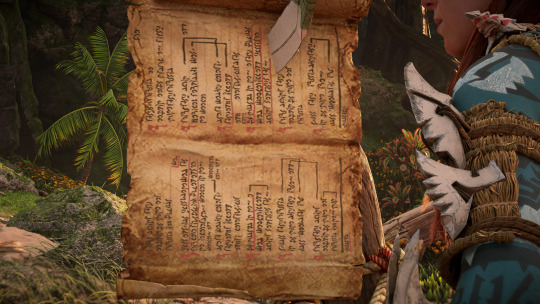
Now, we can't say whether this piece of text is meant to be read top to bottom or whether it was pinned to the post sideways, but it looks to me from the brackets and the red lines (likely underlines) that it's posted sideways and is meant to be read either right-to-left or left-to-right. This does not look like Chinese characters, either simplified or traditional. On a superficial inspection, it looks to me more like the Tibetan syllabary, or maybe the Hebrew abjad, without actually being either of those. In the image I referred to at the beginning of this post, the glyphs look more like the Arabic abjad as it would be used to transcribe Farsi. In other words, the Quen glyphs as pictured in the DLC alone are inconsistent.
To be perfectly honest, I think that these Quen glyphs are a "game-ism": one of those things that's a visual element in the game that actually doesn't match up with the lore, similar to how Grudda is canonically from the Desert Clan but has Lowland tattoos. (If you've never noticed this, I implore you to use tearblast arrows to blow off all his armour until he's naked down to his underoos the next time you play LOL. Drakka would greatly approve.)
In short, I still adhere to the idea that the general Quen population read and write in English using the Roman alphabet, and that the Quen glyphs pictured in these images are visual nonsense (NO OFFENSE). If there are any Quen who speak and read in other languages, it would most likely be a secret faction of Diviners that Alva doesn't know about.
I hope this answer was satisfying and not fucking boring as hell BAHAHAH. Thank you for making me think about this, though! It also reminds of a mini-rant I have about Hekarro wanting the Tenakth to learn Carja glyphs that I should find some time to write out!
If anyone has further thoughts about this, feel free to comment/reblob/send me an ask or a message or whatever! ❤ Also, forgive any typos, it's past 1AM when I'm writing this LMAO.
-- much love from your friendly neighbourhood Pika xoxo
#horizon forbidden west#hfw#horizon burning shores#burning shores spoilers#horizon meta#is that a thing? IT IS NOW#pikapeppa talks#quen#alva#alva hfw
26 notes
·
View notes
Text
Kotallo and Alva Brotp Headcanons
◇ Kotallo is already a semi-neat person, but he picks up on the fact that organization and tidiness hold a deeper meaning to his new Quen friend. He can see the way her eye twitches when a little dirt or water runs on the counter after Zo tends the plants. Or how her hands jump to reposition the tankards on the kitchen counter as she makes the walk back to the data center after coming to speak with him. A tension in her shoulders at the end of the day that only eases when she returns her living quarters to the pristine and organized state she prefers.
:readmore:
He finds himself tidying his space a little extra, knowing that it will make her feel more comfortable in her visits. Before he realizes it, this instinct to ensure her comfort follows him to the common room. He subconsciously picks up any fallen leaves as he walks by the plants, tucking them back in to the pot so they aren't lying on the floor. Repositioning things as he walks behind Erend, the man leaving a trail of strike pieces, tools, and tankards in his wake. Neither he or Alva recognize the way he adjusts his behavior to match hers until one day they both instinctively reach to reposition a slingshot Aloy left on the counter in the common room, their hands colliding awkwardly in their haste. They both pause for a moment, eyes wide in surprise, before bursting in to laughter.
◇Kotallo tries to convince her to paint her face with him before heading to the Zenith base. He knows that Aloy believes her a capable warrior, but believes paint would help grant her the strength of the Ten that he fears she might desperately need. Alva is a little surprised and confused by his request to paint her face, but once she understands his reasoning it warms her heart. She still puts her foot down on the matter as a hard no. The idea of that much paint drying and pulling at her face and neck being a sensory nightmare. But she to show she appreciated his idea, she concedes and does a very light and small Quen pattern below her eyes. She makes a joke about him having the "Strength of the Ten" while she has the "Strength of the Quen" and he grins as they set out to save the world.
◇ Kotallo listens with awe to Alva recounting the tale of Faro's Tomb. When he discovers that Aloy and her ran through fire and molten lava as the building "fell from the sky" around them, he is inspired. He forces her to show him clips of the lava from her focus and gets so excited that he insists her and Aloy mark the event on their skin to commemorate the thrilling victory. Aloy isn't sold on the idea, but Alva is interested in the tenakth tattooing process so she agrees. Kotallo beams with pride as she gets the event etched into her wrist, the marshal excitedly telling all the Tenakth at the Grove of her brave adventure while Alva does her best to not cry in front of the intimidating yet hot tattoo artist.
◇This is probably one of their earliest conversations. Kotallo overhearing Alva mention that one of their adversaries is the Quen ancestor responsible for their battle tactics, and deciding to ask her about it. Both in hopes of understanding their enemy better, and to gather information for his personal project. Alva being surprised he approached her at first and then getting absolutely lost in an infodump about her people's history and knowledge of Visser. I don't think she'd share data files, if she even has them, because sharing the "legacy" seems to be a big taboo for Diviners. But I could see her word vomitting as much as she can remember about Visser to him.
Kotallo would at first be a little overwhelmed and surprised by the sheer intensity of it. Especially since not moments ago she appeared timid and unsure of his presence. But the excitement and confidence she exudes while she comprehensively explains the beliefs of her people impress him. She gestures with her hands and cuts her words with the same precision and self-assuredness he does with his blade.
And he sees for the first time, a warrior inside her. She has studied her craft and honed her mind with the same deligence he has, and uses her skills for the betterment of her people, as he does. Kotallo finds himself admiring the odd outlander in a way he had not expected. Though, he has never met another soul capable of speaking for such long periods of time without pausing for breath before. Somehow this also impresses him. He wonders if she swims.
◇He makes it a goal to teach her strike. She takes it kicking in screaming because no matter how many times he explains the rules to her, it seems he's speaking a different language and it goes right over her head. She eventually starts grasping the rules, and at that point she proves a very capable strategist. She is the first person in the base to beat him.
To pay him back, she teaches him a Quen game. Im picturing it being something similar to Go or Backgammon. He is terrible at it and it becomes his mission to unseat her as the reigning champion.
#kotallo#alva#kotallo/alva brotp#gaia gang#horizon forbidden west#horizon headcanons#headcanons#horizon meta#idk if this counts as meta#brekkie thoughts#horizon games#playstation#horizon zero dawn#hfw#hzd#long post
28 notes
·
View notes
Text
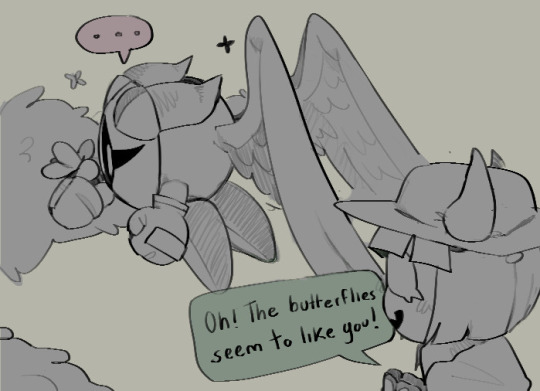

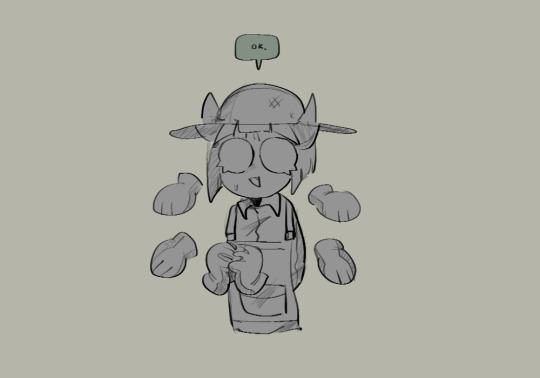
Bonus piece from this art
#kirby#kots#kirby of the stars#kirby fanart#hoshi no kirby#Taranza#Galacta Knight#Galacta doesn't know how to go about life without being mysterious#the difference between Galacta and Meta Knight is that Galacta is quiet and mysterious by nature#meta knight does it on purpose to appear cool#Taranza is trying hard not to judge#I think he gave up on trying tp understand#Galacta is mostly quiet but sometimes goes into these monologues while looking at the horizon and Taranza politely listens#Galacta is like 'I've been through so many lifetimes and relived my death time and time again and yet trusting is my demise'#and Taranza is just like 'sure'#Taranza just appreciates the companionship while he's gardening it's like listening to youtube while you draw#you didn't understand half what you just listened to but at last it feels like you're not alone#I'm not sure how to free Galacta Knight in my au yet#but i know they can't fight or they risk to go back to their crystal#that's a rule mentioned in the novels and we don't have tons of those in Kirby canon I'll take what I can get#so instead of fighting they take on gardening isn't that nice#Galacta probably arrived at Dreamland first (Because of course they do) and Dedede doesn't want to deal with them and just sends them away#they probably live temporarily with Kirby because in the novels Kirby actually likes Galacta a lot it's their kin#enough talk about backstory this is supposed to be taken at face value#but Galacta and Kirby would be besties and probably the first person Galacta trusts in basically forever#Galacta would HATE magolor#that's all im going away im so sorry im autistic
566 notes
·
View notes
Text
Kirby Town Tunes
A collection of town/island tunes for Animal Crossing based on assorted tunes from the Kirby series. Screenshots are for New Horizons, but they should work in any Animal Crossing game.
Running Through the New World from Kirby & the Forgotten Land
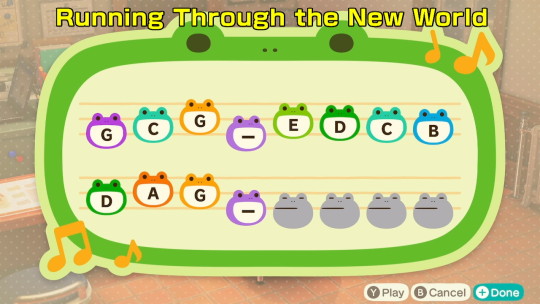
My Friend and the Sunset from Kirby Super Star

More under the cut for ten total
Planet Popstar from Kirby 64
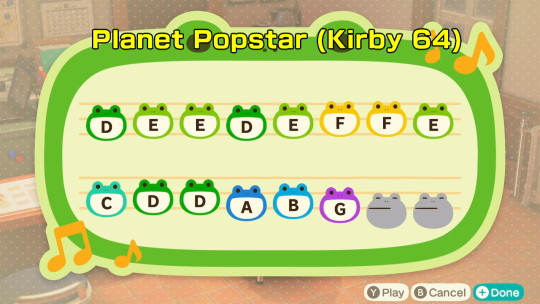
Grass Land from Kirby's Epic Yarn

Mt. Dedede from Kirby's Dream Land (also just Dedede in general)

Boarding the Halberd from Kirby Super Star

Castle Lololo from Kirby's Dream Land (also associated with Dynablade) albeit based more on the Super Star Spring Breeze rendition

Frozen Hillside from Kirby Air Ride
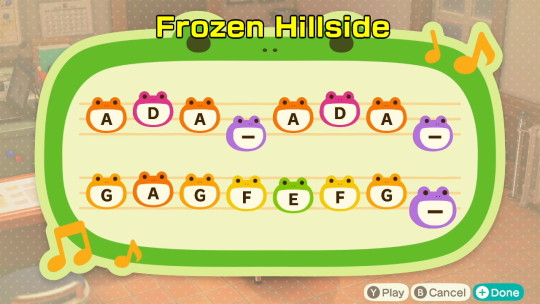
Bubbly Clouds from Kirby's Dream Land

Wind Blowing on Earthfall from Kirby Star Allies (ending is a bit truncated here)

#animal crossing#animal crossing new horizons#ACNH island tune#acnl#acww#animal crossing wild world#animal crossing new leaf#kirby#Kirby's Dream Land#kirby 64#kirby super star#kirby's epic yarn#kirby air ride#kirby and the forgotten land#kirby star allies#meta knight#king dedede
256 notes
·
View notes
Text
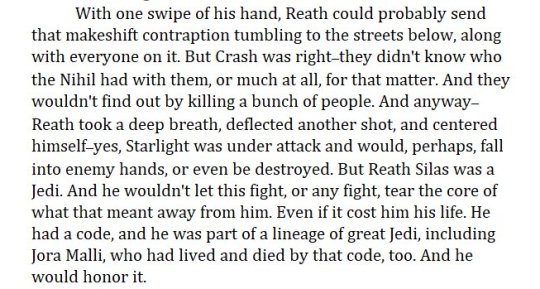
JEDI LINEAGES ARE NOW A THING IN CANON????
(Star Wars: The High Republic: Midnight Horizon)
156 notes
·
View notes
Text
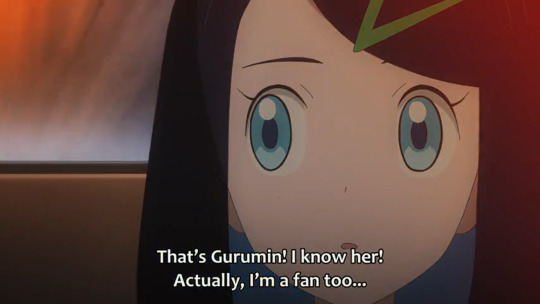
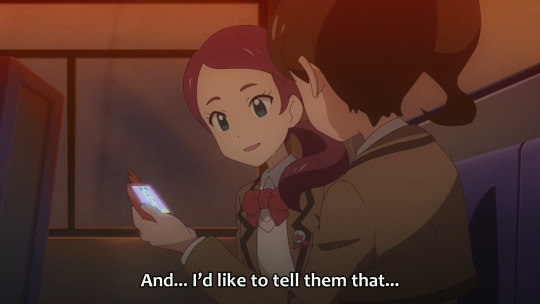
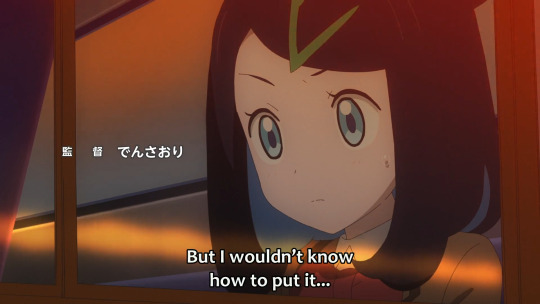
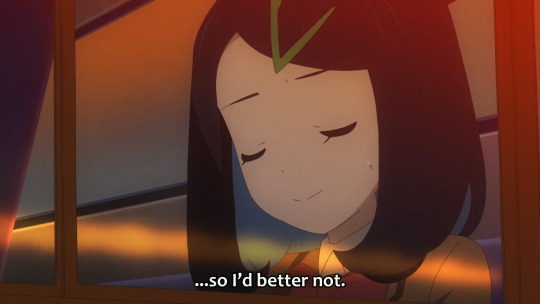


I love how they've already given Liko an internal conflict that's so different from not just Ash, but most protagonists we've had in Pokemon so far. We've had characters be nervous before, and who've had difficulties socializing in their past, but I don't think any of them responded to it the way Liko does.
She's not super animated when it comes to her anxieties, either, which is kind of refreshing in a way. I feel like there's a tendency to make these sorts of characters so loud and obvious about their fears that it sometimes becomes comical, and while I don't have an issue with that, it's nice to see this more grounded take on it, too.
Because like... anxiety isn't always visible. Liko clearly has a lot going on in her head at any given moment, but she doesn't outwardly express herself very much. And as a result, people reportedly have a hard time understanding her.
And that's just really cool to see in the protagonist of this kind of series - one that has such a bright, loud energy to it. Sure, Liko will probably develop to have a similar energy to her, but her starting place is fundamentally different from what we've seen before, and that's exciting to see play out. I'm already looking forward to seeing more of her!
#pokemon#pokeani#anipoke#pokemon horizons#trainer liko#analysis#meta#There are more things that I like about Liko from the first episode but I'm leaving it there for now#Also I really want to spell it as Riko but the subs and whatnot are saying Liko so. I'll manage I guess
601 notes
·
View notes
Text
the thing I keep coming back to at the end of the day here is that luffy’s got some insane latent abandonment issues, and zoro and nami are the absolute surest thing he has. he has those two Locked The Fuck Down so hard he might as well have put a ring on it before they even hit loguetown and he knew they’d be his from the second he saw them. they’re his aces in the hole that he can always count on to help him cut through all the bullshit and get to the heart of the situation. something that always stands out to me is the way that when luffy and zoro end up tied up in a combat situation, it often falls to nami to direct and organize the crew (most notably in water 7); they’re his seconds in command, one to back him up on the battlefield and one to hold down the fort so he’s free to fight as he pleases. and in return for this faith and trust nami and zoro are genuinely the most obsessively devoted motherfuckers they’re capable of being! none of their dreams belong to just them anymore it’s THEIR dream to make luffy king of the pirates, THEIR dream to map the world, THEIR dream to become the best swordsman. frankly if they all loved each other any more than they do they might just burst
#one piece#I literally cannot ever stop thinking about how they never fucking doubt each other. not when it matters. they’ll all always come through#btw nami does end up calling the shots surprisingly often when you keep track of it#romance dawn trio#my like. rule for them ig. is nami watches the road. zoro watches their backs. and luffy watches the horizon#logistics protection and purpose if that makes sense#op meta
110 notes
·
View notes
Text

yeah, I enjoy animal crossing
#animal crossing new horizons#acnh#kirby#bandana waddle dee#king dedede#meta knight#rick kine and coo#marx#gooey#adeleine#ribbon#dark meta knight#daroach#magolor#taranza#susie haltmann#francisca#flamberge#zan partizanne#dream friends#luigi#mario#mario toad#mario bros#animal crossing screenshots#toad#bup#random screenshot#kirby bandana dee#kirby king dedede
42 notes
·
View notes
Text

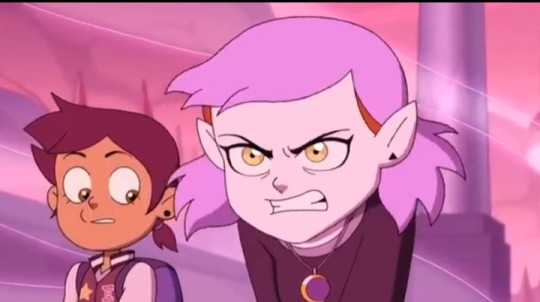
This scene is actually a lot more full-circle than I originally thought
Odalia has done this before. She discouraged Amity's friendship with Willow and forbid her from seeing her again. Losing the one healthy relationship she had at the time was the snowball that led her to becoming a bully
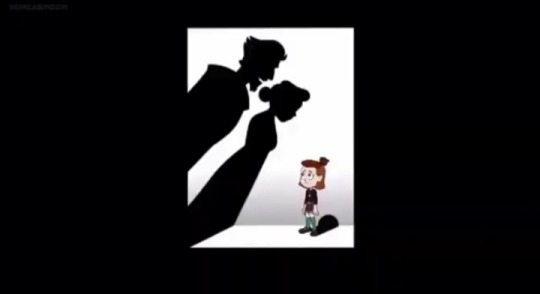
It isolated Amity from any kind of affection for years. What's even worse is that Odalia invalidated any autonomy Amity had and taught her that she did not have the right to choose the people she associates with
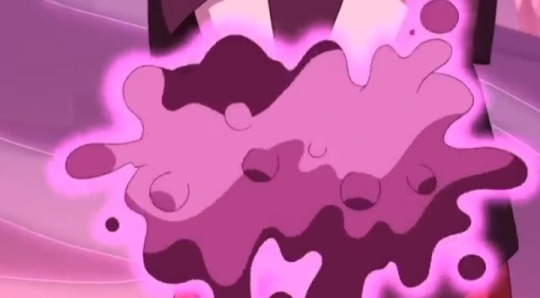
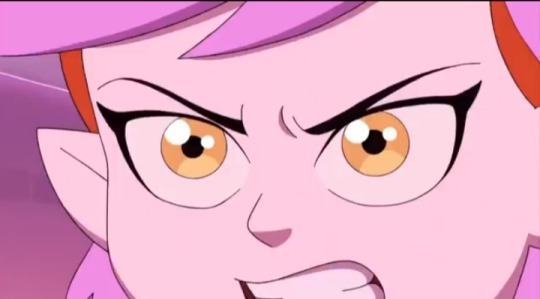



Once again, Odalia is deciding who Amity will and will not love, but Amity isn't a child anymore. This moment is not only in defense of Luz. This moment is for her younger self who couldnt stand up to her mother. This moment is for Willow and all the pain Amity caused. Amity needed this catharsis to put those incidents behind her and get out from under her mother's shadow
#the owl house meta#toh meta#amity blight#willow park#lumity#odalia blight#clouds on the horizon#the owl house season 2
2K notes
·
View notes
Text



"i did what was acceptable at the time." || Niloy November Day 10: Remorse
Horizon Forbidden West (2022)
#horizon forbidden west#hfwedit#niloynovember#aloy hfw#need aloy to fully realise the extent and impact of nil's words in h3#i'm too tired and have far too much of a headache for more elaborate tags or meta but blah blah right vs. easy blah blah her own violence#sleepy#mine*gif#videogameedit#gameredit
132 notes
·
View notes
Text
After listening to the GAIA Cast deep-dives and making up the transcripts for them, it's really obvious in hindsight how many hints get dropped through specific phrasing choices by Narrative Director Ben McCaw regarding certain topics, and I am currently losing my mind at all the hints and character parallels that are in the Jan. 30 Playstation Blog about Call of the Mountain (CotM). link
---
During "GAIA Cast EP. 6: Uncovering the Carja Civil War" [transcript by me here], Ben McCaw and Lead Quest Designer Tim Stobo talk about the divide in the tribe as an interesting tipping point to come into from both a narrative and world perspective. One of the things that particularly caught my interest is the following quote by Ben:
"And one of the things that’s important, like in any civil war, it’s like families have been torn apart, right? It’s one tribe that’s been cut in two and some family members wound up on each side."
This is talking about some more specific instances in sidequests in which we see "the good, the bad, and the ugly" kinds of people within the two halves of the Carja, but the emphasis on seeing how the tribal divide impacts all different sorts of people is another detail that they continue to discuss. It's not just the Shadow Carja refugees in need of food and medicine, and supplies being smuggled by Sun Carja by robbing the richer upper class, but regular everyday civilians like Atral and Elida who are torn apart by the conflict (in a very Romeo and Juliet type fashion).
Which is why I find it especially interesting in the character teaser/ introductions of this most recent blog post, the topic of the divided tribe and divided families in CotM, and the impacts of actions taken during the Red Raids is again brought to our attention:
Guerrilla’s Studio Narrative Director, Ben McCaw, offered us further insight: “Ryas ended up on the wrong side for the right reasons. His family was torn apart, and ultimately, he was incarcerated. This is the story of how he tries to come back from that.”
**HZD and HFW spoilers and further discussion under the cut.
Digging into the topic of families divided and torn apart, we see its most obvious wound in the royal family, and the opposing forces of Jiran vs. his sons Kadaman and Avad, and later, Avad and his half-brother Itamen. In these two opposing relationships, we get to see and explore facets of the complications of the father-son relationship: the father against his sons, and the sons against the legacy of their father.
Morally and ideologically, we know that Kadaman and Avad care for their people and their tribe, in speaking out against the Mad Sun-King's edicts, and paying some kind of price for it. In Kadaman's case, it's his life; for Avad, the faith of the people and the fear of becoming like his father are burdens he will never be able to escape. Where family and fatherhood are meant to be examples of protection and guidance, this bond is warped beyond recognition in regards to Jiran and his sons.
The legacy of the father and the shadow it leaves behind, in both a metaphorical and cultural sense, in one that Avad and Itamen each have to grapple with in the uncertain stage of a ceasefire and afterwards. Metaphorically, they each have their own battles in stepping out from under their father's shadow: Avad as the King of the people and proving his will not become his father's son, and Itamen as a child figurehead for the will of others fuelled by ambition and blind faith. They are pitted against each other as symbols of the divine right to rule, and the cultural aspect of the Sun-Faith -- and the interpretation of Sun's divine will manifested through the power of the rightful king -- continues to perpetuate the intra-tribal divide.
---
Back again to the divide of family, I think it reasonable to assume that differences in faith and ideology to be one of the simplest explanations of families picking and choosing sides. In the Liberation comics, we are told of Urid and Ryas, each highly skilled and formidable in their own right, fighting in direct opposition to each other and in direct support to the ruling figures of each faction. Clearly, their loyalty to the governing powers of each faction is fuelled by something stronger even than the bond of family, and I can think of few other motivators stronger than religious faith and a code of honour to serve those whom you pledge yourself to.
“Having fought for the Shadow Carja, Ryas’ relationship with [new allies] is at best adversarial. He needs to make inroads and amends if he hopes to be accepted.”
"At best adversarial" indicates a potential rivalry with allies known to Ryas, or full-on confrontations to be had with other characters who know of him and his reputation. Given our introduction to Hami, the reluctant soldier charged with escorting Ryas, there is already animosity from within their shared tribe, even with the degrees of separation and association and/or participation with the Raids.
Either way, there looks to be some very interesting tribal conflicts permeating the relationships during CotM, which brings me to the next intriguing thing: the hope of acceptance from these new characters.
Acceptance despite past deeds and choices feels phrased like a kind of welcoming back into the fold, a return of sorts from ostracization or exile. There seems to be a preexisting bond that is under strain if the goal is simply acceptance, rather than "to be trusted".
"Making inroads and making amends" has absolute implied meanings of repairing broken bonds. But a broken bond with who? Given the precedent of reuniting estranged brothers in 'The Queen's Gambit' sidequest, Avad and Itamen show there is hope for rekindling and repairing the fraternal bond. Given this information, the most obvious candidate so far to whom Ryas would be repairing broken bonds with is his own brother, Urid.
---
So, we have the history of brother against brother, and the future hope of reuniting and reconciling said brothers. But what about the hints that "players will [...] be reunited with familiar [characters], though [Ryas'] past has affected these relationships"? Who else is familiar enough from HZD or HFW for us to anticipate seeing in CotM? With all of the promotional imagery of standing between the Sundom and Sacred Lands, I will focusing on potential Carja character appearances, since I feel there may be little in the way of Nora appearances given their cultural reluctance to venture near metal ruins that we will likely be exploring as Ryas.
Given their multiple mentions in Ep 6 of GAIA Cast, Uthid and Vanasha seem likely candidates to make an appearance. Vanasha's reconnaissance abilities and connection to Marad could provide some early intel as to what kind of situation we're heading into, and Uthid's switch in loyalty due to his honour code is an early seed to be planted for the legitimacy of Avad's mercy and willingness to make amends with a former Shadow Carja. As merely a captain, it is not likely that Uthid will have had any interaction with Ryas during the flight to Sunfall, but it presents an interesting common ground for these two weathered soldiers and their levels of involvement .
(Personally, I hope that Warden Janeva makes a brief appearance if for nothing else than to see what their assessment is for Ryas' character and his release from Sunstone Rock.)
And speaking of Sunstone Rock, there's the most obvious character to - hopefully - make an appearance: Nil.
---
Nil as a character is steeped in mystery, with his cryptic eloquence making it difficult to pin down much about his past. However, there are several parallels that draw him and Ryas along correspondent narrative threads that I find too interesting to leave alone.
For starters, an easy comparison of these two is their particular set of skills as hunters and fighters:
"As a master climber, hunter, and explorer, Ryas offers the perfect viewpoint of the sweeping vistas and dangerous wilds of Horizon.”
A significant feature of CotM appears to be climbing, and as we know from the Liberation comics, Ryas's brother Urid is the best climber in the Sundom. Nil is clearly an accomplished climber himself; the climb to the top of the Mesa during the "Cause for Concern - Farewell" quest is a long one with lots of jumping from handhold to handhold and creeping along ledges.
Nil's hunting ability is such that he sees bandits as a more satisfying challenge than hunting machines, even the more deadly combat machines that have emerged in the recent years; stating "They don't get that look in their eyes." (Devil's Thirst Bandit Camp conversation). Ryas' reputation precedes him, as Hami and Kavad -- the Carja escort soldiers -- comment that "everyone says Ryas is a good shot" (CotM State of Play reveal trailer), so clearly his ability with a bow is notable enough to be wary about.
Thirdly, being well-traveled and adept at exploring the world and its metal ruins in search of information is a quality we see in few others. Most other tribes have superstitions concerning the Old World ruins, and so avoid them; or are more pragmatic about its use for profit, as seen with Oseram delvers. We see Nil unafraid to venture into these ruined places, going so far to say "[those] lonely places where people once were, now just a hole cut in the world? Chances are, I was there before. " (Gatelands Bandit Camp conversation)
---
Jon Gonzalez, the Narrative Director during HZD, emphasized Nil's significance as a representation of the effects of war, and clarified that there are elements of his quest narrative that are acts of atonement, of trying his best to balance the wrongs he's committed with a new motivation.
There is a kind of retribution in Nil's brand of atonement in that he hunts those who prey on those even weaker. Even if his claimed motivation is purely to sate his bloodlust, there is still some act of good done through it (Although his descriptions of racing heart, ringing in the ears, and the feeling of a "call to arms from inner desires" all point to chasing adrenaline highs). His acts of atonement are done in an echo of the presumed kinds of actions he took during the raids, of participating in the preying on those with less power. Instead of continuing that path, now he hunts those who would do the same.
"And I think that there are a couple of characters that also highlight really unique aspects of some of the tribes in really idiosyncratic ways. I think that Nil, [...] who seems to have become kind of a fan favorite, the kind of way that he has this kind of unique, sociopathic kind of approach to killing, but the way that that's connected to the lore of the Carja. The way that the Carja were preying on other tribes, and [...] the Red Raids and all of that, the thing [...] is this is a guy who's sort of a monster but knows that he was a monster – and to the best of his ability, kind of regrets it and has tried to atone. "
- Writing Horizon Zero Dawn - Jon Gonzalez interview link
The phrasing about Ryas "ending up on the wrong side for the right reasons" also seems to echo Aloy's impression of Nil upon the conclusion of their first bandit camp raid:
And when asked about a favourite backstory element or quest moment, Ben's comment about how intertwined Nil's questline and story is with the Red Raids and the civil war also seem to be more than just a passing anecdote.
ALOY: So you hunt [bandits] down to help others?
NIL: No, no - for sport. I can’t wait for wars anymore: life’s too short and the thrill of death too sharp. If you kill a tribesman, there’ll be retribution; hunt a boar, they complain if you waste the meat. But bandits? They’re vicious. They always put up a fight. And no one cares if you kill them.
ALOY: I…guess you’re doing the right thing for the wrong reason.
NIL: I’m doing what I love. And what could be wrong with that?
- After completing Devil's Thirst Bandit Camp (HZD)
Tracing his quest path through the game takes you all over the map, although he will only join you for 3 of the 6 bandit camps in the overworld. He is clearly a skilled hunter and tracker to comment on "the surprised splashes [of blood] and scrabbles in the dirt" when next he sees Aloy. The two camps he is always present at seem to hold some significance too. Obviously, he's present at the Devil's Thirst camp on the outskirts of Nora land to start his questline, but the Nora were some of the most affected; he begins his journey of atonement there. The Gatelands camp -- on the Sundom side of the border between it and the Sacred Lands -- is where we learn of his stay at Sunstone Rock, with additional dialogue with him if you've made a stop by the prison and talked with Warden Janeva beforehand. Nil specifically waits for Aloy there; a border between two worlds, a step a little more into the world he is from.
"… if you really pay attention to what’s going on with Nil in those raids on bandit camps, his story is kind of interwoven with the Carja civil war and the Red Raids quite a lot, and he has a very, of course, unique and kind of homicidal insight into all that stuff. So I mean that’s something that I really enjoyed, because if you trace Nil’s paths through the game, a lot of it does in fact involve the events surrounding the civil war."
-- GAIA Cast Ep. 6 - Uncovering the Carja Civil War
Janeva's opinion on those kept within the prison and those who are released also vary significantly. The sidequest "Sunstone Rock" charges us with fulfilling the bounty on the 3 escapees, the Rock's most dangerous criminals. Janeva's assertion that the prisoners would have eventually found death are a stark contrast to the quiet surprise when Aloy asks after Nil, and the turn his path took when he left. And as we see again with Ryas, Sunstone Rock holds significance for those who are released from the prison to go forth on a turning point on their personal journey.
"[...] there’s a couple other characters that are associated with Sunstone Rock, including Nil. So if you talk to Nil enough, you’ll find out that he was actually imprisoned in Sunstone Rock at one point. And there’s also a character, an important character actually, that was imprisoned at Sunstone Rock that we are going to learn more about in the future."
---
It feels significant that Ben teases an upcoming character from Sunstone Rock that will be a person of importance in learning more about the world. What can we learn from Ryas' position in a recent, bloody history of tribal conflicts? What new point of view can we experience as someone deeply involved with the old power that split the Carja, and his reaction to the changes in the state of the world now?
All of these exciting questions aside, the biggest mystery of them all at the moment is Ryas' identity: is he at all related to any characters that we have met during the games? With his face deliberately concealed with a cowl in all of the promotional art, there must be some clearly identifiable feature that reveals something about his lineage, presumably a family we already know and recognizable by their Carja eye markings. There are few things as satisfying as a face reveal with deep narrative impact, and I think there is something other than just VR marketing to keep the protagonist 'blank slate', so to speak.
And we have a precedent for an impactful face reveal with satisfying emotional-narrative payoff: Nil's reveal to Aloy after winning the final Gauntlet race. It's a reunion after parting in circumstances of uncertainty; a reconciliation with actions and attitudes of the past and a display of healing and contentedness in themselves in the present. And in this reunion, Nil displays an almost parental affection in how he talks about the other Tenakth racers and refers to them as children.
---
Horizon is, in a way, the story of parents and their children, and coming to terms with what is left behind for the children.
We see it in Rost and Aloy and his willingness to do anything to protect her; we see it in Lis and Aloy and the power of hope, of wishing the world to be better for those who come after.
We see it with Jiran and Avad, of the legacy of the father and the challenges of the son to step out from that shadow.
The phrasing "family torn apart" makes me think there is more than just the fraternal bond to come back to and resolve. With the emphasis and importance on the father-son relationship in Carja culture, it feels like a reasonable conclusion that there will be some exploration of that paternal relationship in regards to Ryas.
Nil has shown tremendous personal growth in his ventures into the Forbidden West. He has found a healthy outlet for his adrenaline rushes in racing, and a kind of healing from the atrocities of his past in the acceptance of group that he explicitly refers to as children -- and children from an tribe that were explicitly wronged during the Red Raids.
What better parallel than to have a father finding healing and acceptance from his son who what also harmed and wronged by the Red Raids?
#cor writes#cor's meta analysis#horizon call of the mountain#call of the mountain#cotm#horizon meta#cotm meta#i am losing my marbles#i am practically bursting with the potential of it all#shoutout to the niloy hell discord#we're gonna be feasting on new lore and content with cotm and i could not be more excited#horizon meta and theories
18 notes
·
View notes
Text
The first thing I should ever have said about Izzy and the last thing I intend to say until at least October 26th.
[Although I am not Her strongest soldier, so who knows if I will stick the landing.]
So to start with, I was a "late" arrival to the show. I knew it existed of course, but I only occasionally saw things that reminded me it existed. The first time I saw a mention of "grumpy/sunshine" it was with a picture of Ed and Stede, so I guess on some level I knew there was shipping going on, but that was literally all I knew. I didn't even know it involved Blackbeard lol.
Which is all to say that I first approached and watched season 1 removed from basically anything anyone had to say about it. I think what actually got me to watch it wasn't anything anyone had to say either, it was from youtube recommendations? Like I think I had watched a couple Taika interviews or something and ofmd stuff started showing up? So after catching a few clips and intentionally spoiling the kiss for myself (life is too short to be queerbaited) I watched it in April/May 2023, and was Changed by it the way so many other people were. It grabbed me so hard I started looking for fics, and when fic grabbed me even harder I became a regular tumblr user for the first time ever in June 2023.
What I didn't do, before the second half of 2023, was care particularly much about Izzy Hands.
I remember describing him as psychologically fascinating to the first IRL friend I talked to about the show, and joking that he just needed a good dom. As much as his decision to call in the navy was a threat to Stede's and Ed's lives, I saw his actions as part of a thing needed for the story, and while I knew he was one of the season's villains there wasn't really any heat behind that assessment.
For me he was there to set things in motion, and to serve the narrative in certain ways, to be a foil, more storytelling tool than man. That doesn't mean I didn't think Con did an excellent job adding layers to him, he absolutely made Izzy take up space and feel more present and textured than he otherwise might have. But when I began to zoom out and consider things on meta level, Izzy existed to do a certain thing or occupy a certain place in relation to the narrative and other characters more than anything else. And that was fine.
Then I started reading meta here, and found myself surrounded by passionate conversations about Izzy from many directions occurring with an intensity that I couldn't wrap my brain around. I saw people tying themselves into knots to justify and excuse the behavior of a textual antagonist, and I was baffled and because I still saw Izzy for what his role in the narrative was, it literally made no sense to see his behavior explained away. In the framework I brought to the fandom when I first arrived, trying to explain away Izzy's behavior would be like looking at a forest fire and trying to explain away processes like combustion and oxidation. Or if you'll allow me to borrow another extended, nature-based metaphor from a fic in an entirely different fandom:
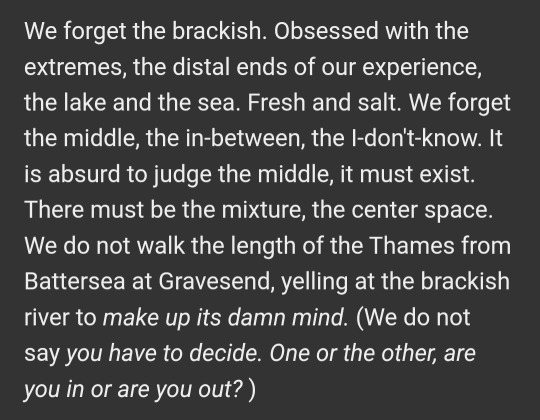
Again, because from where my head was at, it didn't make sense to look at Izzy's morality as a zero sum game because in this metaphor, he was functionally just a brackish body of water. I'm not saying the morality is brackish, I'm saying the morality was literally not the point because like an estuary, an antagonist "must exist" because antagonists exist for specific reasons directly related to storytelling goals.
So there was no real heat behind my feelings about him or his actions, beyond the natural emotional reactions we have to characters and their behaviors before we zoom out. I was of course upset with his treatment of Lucius, which was targeted compared to other members of the crew. I was annoyed with the way he talked to and about Ed. I laughed when his plans had the equal and opposite results of what he intended, which you could argue happened with every single plan he made for the entirety of season 1. And yes, especially as a Black person living in the US, I felt the fear and betrayal that comes from seeing someone call the cops (which given the show and its writers, it does not feel like a stretch to describe calling the navy that). I wondered if there was any coming back from a choice like that, which is a big overriding question for the series as a whole.
I'm not here to debate any of the points in the previous paragraph. I know how I feel and you feel how you feel and there's already been so much said about the morality of it all by people who have explained themselves well, so let them convince you or not. Instead I've been trying to talk about the two sides of my experience before and after getting into the fandom with Izzy.
Before: Izzy Hands, Narratively Useful Antagonist Portrayed Compellingly And Effectively by Con O'Neill.
After: Izzy Hands, Unfortunate Avatar Of The Sadly Common Tendency For Certain Fans To Hyperfocus On A White Antagonist Or Secondary Character When There Already Exists A Protagonist They're A Foil Of (And Also It Looks Bad TO Do That When The Protagonist Is Someone With A Marginalized Identity).
I'm not here to argue the merits of those assessments either, because that's not the point. The point is the vast gulf between them and how the latter does such an incredible disservice to the Izzy we were given and that so many people claim to love. The latter comes from a place where morality is the focus, which I'm sorry y'all, feels like it originates with people who refuse to countenance Izzy's role in the story as well as his characterization.
Viewers who were willing to see Izzy as an antagonist, who don't view the word "antagonist" as a value judgement in and of itself, who don't think that finding an antagonist charismatic or compelling means anything about their own morality, those people can look at the show we were given and take it for what it was made to be. I'm not saying that it's only the Izzy stans (not enjoyers, not jar people) who start fights or that people who understand that Izzy is an antagonist don't also have deep morality related feelings about him and his actions in the first season. What I am saying is that sanding off Izzy's rough edges and trying to make him into something he isn't poisons even the possibility of having a discussion about him because people enter the conversation with two completely different understandings of reality. If you cannot accept the job that season 1 Izzy was given to do to move the story along, well you might as well have watched a completely different show for how much that fanon Izzy has anything to do with the canon one.
This show deserves better than that. The writers deserve better than that. Con O'Neill deserves better than that. Israel Basilica Hands deserves better than that. We all do.
#I know some of y'all are allergic to calling season 1 Izzy a villain or even an antagonist much less a villain#but given how self aware this production is about tropes it's weird to pretend that's not literally his function#at least in season one#maybe there are changes to that on the horizon#but we won't have the complete picture until Oct. 26 so maybe chill if people have an antipathy toward him#especially because at least a third of that antipathy is rooted in how criticizing him AT ALL acts like a summoning ritual#and I have to wonder about the acrimony levels if people felt like they could offer critical opinions easily#anyway rip my notifications probably#ofmd#our flag means death spoilers#ofmd spoilers#ofmd speculation#ofmd meta#fandom meta#fandom fuckery#character meta#let izzy be izzy#izzy hands#izzy critical#the izcourse#and now to filter literally every Izzy tag until November so I can enjoy the season in peace#that's as close as I'll make it to the halcyon days of my season 1 watch#ofmd s2#ofmd season 2#ofmd season 2 spoilers#ofmd s2 spoilers#ofmd s2 speculation#ps I won't be responding to replies because look at the title of this post
95 notes
·
View notes
Text
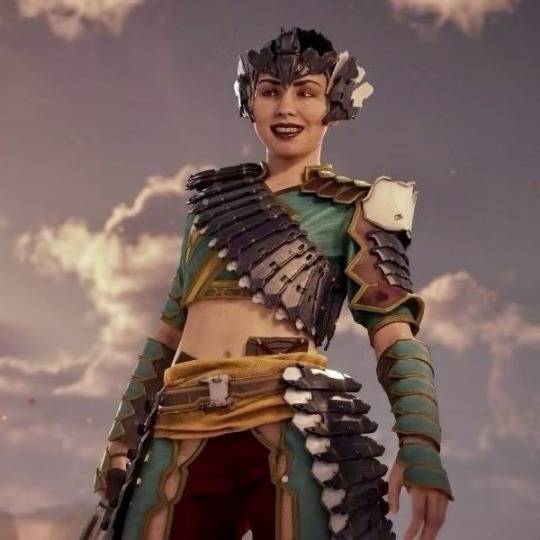
happy Lesbian Visibility Week to her! hope the Masterdoc was preserved in APOLLO because hoo boy does she need it
#I am going to make that big Comphet Talanah meta post soon#that’s a whole lesbian#you and Ben can pry that headcanon from my cold dead hands#horizon forbidden west#talanah khane padish
35 notes
·
View notes
Text
Bleach’s Issue with Queer characters (3/3)

So then there’s Giselle (and to a less canon extent Shutara) who I think Kubo erroneously categorizes as similar to both eachother and to the above gay men stereotypes. And I think understanding Kubo’s approach to Giselle hinges on what he set up (but didn’t follow through on) with Shutara.

I’ve mentioned before, but I’m pretty certain think Shutara Senjumaru is meant to be a kabuki onnagata*. Not in-world, mind you; I don’t think she is somehow employed as an actor in a literal kabuki theater. (i would hope that was obvious, but one can never be too sure...) Just like Tier Harribel isn’t literally a light skinned, dark haired person doing gyaru/ganguro fashion, her presumably naturally tan skin and blonde hair is based on the general aesthetic. Shutara likewise is channeling distinct look and feel that draws from a mix of oiran, geisha, and kabuki aesthetics. (granted all three are closely related in influencing one another’s aesthetics in the first place)
But while the look and even the demeanor tend to play all three ways, I think the particular fixation on clothes, costuming, and the somewhat adjacent theme of “disguise” that Kubo has shown to put emphasis on in this kinds of situations, as well as the fact that he gave her a distinctly masculine name, Senjuumaru, point to her being some form of queer, albeit something Kubo seems to pretty clearly lack the understanding to better articulate himself. Is she a trans woman? Gender fluid? A male identifying transvestite? There’s not enough real material for us to draw that particular line, but I don’t think it’s a stretch to conclude that she’s not a cis woman.
*Kabuki is traditionally an all-male theater form, and “onnagata” refers to actors who specialize in playing women roles. Generally all actors train in the delineated masculine and feminine styles, but an actor’s career sticks to just one or the other...
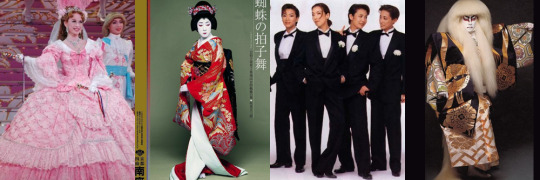
...There is a whole big thing about how cultural institutions like kabuki and takarazuka theaters’ creation of socially acceptable and even celebrated, public and professional genderqueer spaces creates a myriad of gender dynamics that just don’t exist in the West, and it’s something that has made the attempt to adopt a globalized understanding of queer identity a little trickier in Japan:
In the West the gender binary was rigidly enforced such that to explore alternatives was basically uncharted territory (that’s an oversimplification, but you know what I mean; There’s a lack of contiguity with those who came before) but with japan there were already nonbinary spaces in place, and the lines around those don’t neatly line up with the ethnocentric western ideas some people try to pigeonhole those into. In general, it gets dangerously close to just flat up colonizer rhetoric.
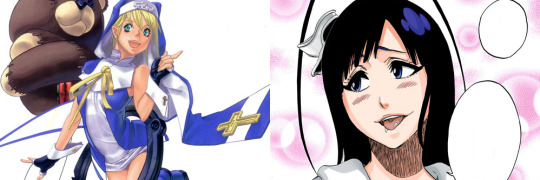
(forgive the outdated reference image, but honestly I don’t know what even counts as a recognizable example of a “““trap”” character these days. And I use that term with GREAT reluctance, but I want to differentiate the exploitative cliche usage of a trans caricature from any actual representational trans character.)
Anyway... That all just leaves Giselle. And let’s be real, there’s no excuse for this one. Maybe that seems like a weird anticlimactic place to take this series of posts... like, after all this, maybe it feels like I should’ve had some equally obtuse logic to explain this one away as a matter of escalation or as a Rule of Threes. But no, not really. I just think it’s a little unreasonable to treat the massive screwup that was Giselle’s portrayal as part of some sort of bigger ongoing trend, when it’s really more of an unrelated outlier in a bigger umbrella subject.
She is in fact a bad case of the long standing anime/manga fetishization of transwomen as a concept, as a spectacle to be gawked at and made the butt of jokes or to be included specifically as an anomaly. And in Giselle’s case her specific depiction as a depraved, physically/sexually abusive villain on top of that is an explicitly toxic combination.
In spite of that, I still don’t think Kubo actually meant for it to reflect poorly (not that that matters or diminishes its harmfulness) I think he genuinely just has no real grasp of what that kind of characterization means. I say that largely because of the way he treats a lot of her role in the plot. Not that she’s integral to moving it forward, but that she occupies space and survives in the plot as long as she does, even when she could've been conveniently (and frankly more neatly) written out;
He seems to like drawing her and gives her a range of expressions and gestures (something he doesn't afford all his characters, even some of his major ones)
He likes to expand on her powers and gimmicks beyond what was necessary if he'd been aiming for minimum effort
He even paired her off against his personal favorite character, Mayuri.
Point being, Kubo seems to personally like Giselle as a character, but he took a horrible insensitive and ignorant path in writing her character.

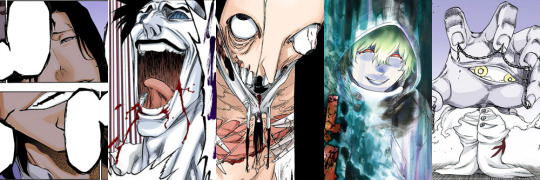
But an undeniable fact is, she’s not alone as this kind of villain, she’s just the only one that happens to be trans.* Mayuri himself, Aaroniero, Szayelaporro, Zomarri (just a little bit), Tousen (at the very end), Tsukishima, As Nodt, Gremmy (a little), and Askin all to some degree dip into this shtick Kubo does where his villains aren’t just sadistic but ecstatically so, to the point of intoxicated, gleeful derangement. Yet in spite of that, those characters are all usually meant to be “cool,” not detestable.
Remember, Mayuri was initially written as, hands down, the most despicable characters in Bleach —he was abusive and sadistic, misogynistic, actually physically grotesque, predatory, dishonorable sneaky & underhanded, complicit in a genocide, just in general a clearly communicated mad scientist villain, and he was all of this in direct and deliberate contrast to Uryuu’s chivalrous personality type(already established in his defending Orihime from Jiroubou) as well as Nemu’s noble stoic subservient victimhood— and yet he’s also Kubo’s favorite character in the series. Kubo doesn’t actually write Giselle any particularly worse than the others, BUT he also doesn’t disassociate her being trans from her being villainous, and again, even incidentally, that manages to perpetuate a harmful narrative in the overall.
*(Actually, I’ve kinda touched on it before but I sort of suspect Mayuri could be trans, in which case; OOPS, that makes two, and that doesn’t make it better....)
[1][2][3]
#bleach#bleach meta#KUBO TITE#senjumaru shutara#giselle gewelle#geez this thing is so old that bridget wasn't even reintroduced to guilty gear yet#in fact strIVe wasn't even a thing on the horizon this far back#also weird that preupdate drafts still adhere to outdated formatting#because typing these tags now and editing these drafts#is working on weird janky tumblr formats that i kind of forgot existed#anyway like i already said in the tags of part 2#im kind of super not satisfied with the wording on a lot of this#feels muddled#and i think i sort of lost track of the root of things#where someone was calling kubo ''obviously'' transphobic#and i think that's not entirely accurate#even if the bottom line almost doesnt make any difference#but there's a difference between ignorance and insensitive#and just outright malice#but the former is very much fixable and even reclaimable#the latter is absolutely not#again tho i get why to a lot of people that doesn't really make a difference#even this far out i dunno how i thought i was gonna end this#or how id do it any differently if i tried now
152 notes
·
View notes